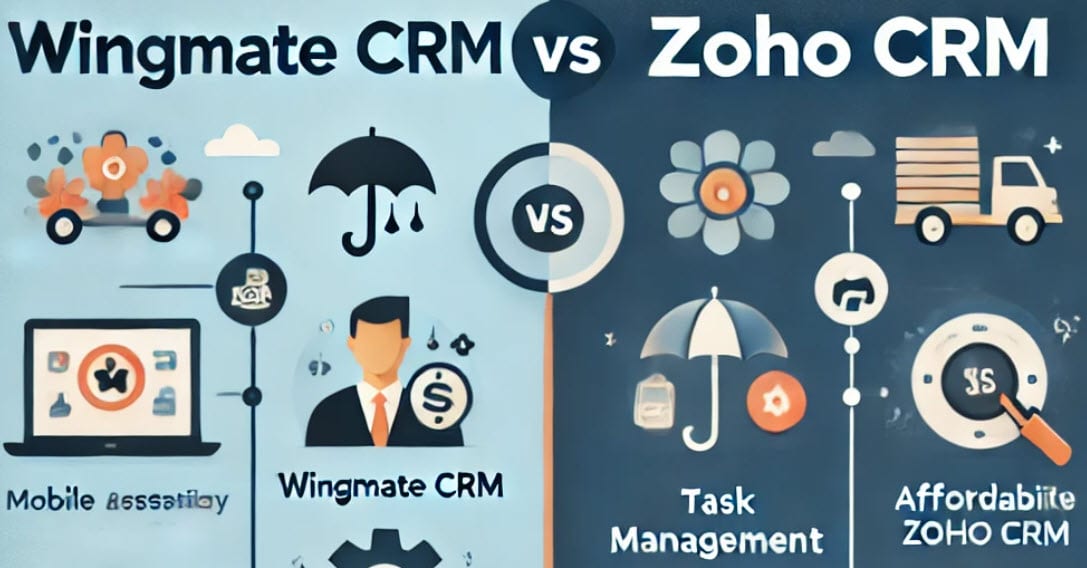
Navigating Telemarketing Laws: What Insurance Agents Need to Know About Calling Aged Leads
This guide aims to provide insurance agents with a clear understanding of the 2025 legal landscape and actionable tips for making compliant and effective calls to aged leads.
The Importance of Compliance
Failing to adhere to telemarketing laws can have serious consequences, including hefty fines and damage to your reputation. On the other hand, following the rules ensures you can:
- Avoid financial penalties, such as TCPA violations that can cost up to $1,500 per call or text.
- Build trust with leads by demonstrating professionalism and respect for their time.
- Focus on high-quality conversations that lead to successful sales.
Compliance isn’t just a legal requirement; it’s a way to set yourself apart in a crowded and competitive market.
Key Telemarketing Laws Insurance Agents Must Understand
1. The Telephone Consumer Protection Act (TCPA)
The TCPA is the cornerstone of telemarketing regulation. It governs how and when you can contact potential clients. Key points include:
- Autodialers and Robocalls: Using an autodialer or pre-recorded message requires prior express written consent from the lead.
- Text Messages: Texting software is treated similarly to robocalls under the TCPA and also requires prior consent.
- Penalties: Violations can result in fines of $500 per call/text for unintentional violations and up to $1,500 for willful violations.
2. The National Do Not Call (DNC) Registry
The DNC registry protects consumers who do not wish to receive telemarketing calls. Key requirements:
- Agents must scrub their lead lists against the registry every 31 days.
- Exceptions exist for leads with an existing business relationship or explicit consent.
3. FCC Regulations
Recent updates from the FCC, including new rules effective January 2025, require “one-to-one” consent for robocalls and automated texts. Manual calls are less restrictive but still subject to DNC and disclosure requirements.
4. State-Specific Laws
Some states, like Florida and California, have additional restrictions on telemarketing. Researching your state’s laws is crucial to staying compliant. (see the bottom of this post for more details on specific state laws)
Best Practices for Calling Aged Leads
1. Scrubbing Lead Lists
Before contacting any lead, ensure your list has been scrubbed against the DNC registry. Use reputable tools or services to automate this process.
2. Documenting Consent
Keep detailed records of consent, whether it’s written, verbal, or implied through an existing business relationship. This documentation can protect you in case of disputes.
3. Creating a Safe Script
A compliant script includes:
- Identifying yourself and your company immediately.
- Clearly stating the purpose of the call.
- Providing a way for the recipient to opt-out of future calls.
4. Time-of-Day Rules
Respect national calling hours, which are 8 a.m. to 9 p.m. local time for the recipient. Avoid calling too early or late to maintain professionalism.
5. Honoring Opt-Out Requests
If a lead requests not to be contacted, update your database immediately to avoid future mistakes.
How to Balance Compliance with Sales Effectiveness
Focusing on High-Quality Conversations
Start with a friendly and professional tone. Build rapport quickly by showing genuine interest in the lead’s needs and providing valuable information.
Prioritizing Leads
Segment your leads by potential value and prioritize those with the highest likelihood of conversion. Use tools to track engagement and response rates.
Following Up
Leads may require multiple touchpoints before converting. Use compliant methods like personalized emails or follow-up calls to nurture relationships.
Tools and Resources for Compliance
CRM Systems
Customer Relationship Management (CRM) tools can help you track lead status, consent, and DNC compliance. Popular options for insurance agents include:
- HubSpot CRM
- Zoho CRM
- Salesforce
Lead Scrubbing Services
Platforms like DNC.com or TrustedForm ensure your lead lists are clean and compliant.
Training Resources
Invest in webinars, workshops, or certifications focused on telemarketing compliance to stay informed of changes in regulations.
FAQs
Q: Do I need consent for manual calls to aged leads? A: Consent isn’t always required for manual calls, but you must comply with DNC rules and avoid robocalls without consent. See your state specific regulations below as well.
Q: How often should I scrub my lead list against the DNC registry? A: Every 31 days to ensure compliance.
Q: What’s the difference between explicit consent and implied consent? A: Explicit consent is directly given (e.g., signing a form), while implied consent arises from an existing business relationship.
Q: Can I use texting software for aged leads if I have written consent? A: Yes, as long as the consent explicitly covers text communications.
State-Specific Telemarketing Caveats
- Florida: Florida’s Mini-TCPA requires explicit consent for all telemarketing calls, including manual calls, with severe penalties for violations.
- California: California requires telemarketers to register with the Attorney General and mandates additional disclosures during calls.
- Texas: Texas imposes stricter DNC registry rules, requiring telemarketers to honor in-state DNC lists, separate from the national registry.
- New York: New York mandates written contracts for certain telemarketing transactions and restricts certain call times.
- Pennsylvania: Pennsylvania requires telemarketers to register annually and comply with stricter state DNC rules.
- Washington: Washington bans deceptive practices and mandates clear disclosures about the purpose of the call.
- Massachusetts: Massachusetts has additional restrictions on using any automated systems and tighter privacy requirements.
- Virginia: Virginia requires telemarketers to provide specific identification details and prohibits false or misleading statements.
- Illinois: Illinois imposes stricter penalties for violating DNC rules and mandates telemarketers to disclose financial information for certain sales.
- Minnesota: Minnesota requires telemarketers to maintain records of all calls and prohibits certain types of aggressive sales tactics.
Conclusion
Navigating telemarketing laws doesn’t have to be daunting. By understanding the regulations and adopting compliant practices, you can confidently use aged leads to grow your business while avoiding legal pitfalls. Remember, compliance isn’t just about following rules—it’s about building trust and creating lasting relationships with your clients.






